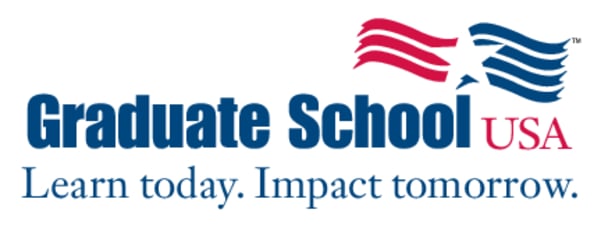Description:
Acquire the skills you need to align workforce planning with your agency's mission. Learn how to forecast and plan for future human resources needs: analyze mission requirements, collect workforce data, identify workforce surpluses or gaps, and identify solutions to address the gaps.
Duration:
2 days
Level:
Intermediate
Who Should Attend?
Anyone involved in assessing and planning for workforce needs, especially HR leaders, HR practitioners, budget analysts, management analysts, and program analysts. Supervisors and managers involved in strategic planning may also benefit by attending this course.
Credits:
1.2 CEUs
Learning Outcomes:
- Recognize the importance of workforce analysis and planning in the strategic management of human capital.
- Use data and planning models in the workforce planning process.
- Analyze and interpret workforce data using workforce supply and demand analysis methods.
- Develop strategies to address skill gaps.
- Take the steps needed to successfully implement a workforce action plan.
- Evaluate whether a workforce plan is achieving desired results or needs revision.
Available Sessions:
| Session Code | Start Date | End Date | Location | Tuition | |
|---|---|---|---|---|---|
| Session Code PMGT7013-004 | Start Date Aug 05, 2025 9:00 AM EST | End Date Aug 06, 2025 4:30 PM EST | Location Virtual | Tuition $1,049.00 | |
| Session Code PMGT7013-005 | Start Date Aug 26, 2025 9:00 AM EST | End Date Aug 27, 2025 4:30 PM EST | Location Virtual | Tuition $1,049.00 | |
| Session Code PMGT7013-006 | Start Date Sep 16, 2025 9:00 AM EST | End Date Sep 17, 2025 4:30 PM EST | Location Virtual | Tuition $1,049.00 | |
| Session Code PMGT7013-007 | Start Date Nov 25, 2025 9:00 AM EST | End Date Nov 26, 2025 4:30 PM EST | Location Virtual | Tuition $1,049.00 | |
| Session Code PMGT7013-011 | Start Date Feb 05, 2026 9:00 AM EST | End Date Feb 06, 2026 4:30 PM EST | Location Virtual | Tuition $1,049.00 | |
| Session Code PMGT7013-012 | Start Date Mar 09, 2026 9:00 AM EST | End Date Mar 10, 2026 4:30 PM EST | Location Virtual | Tuition $1,049.00 |
Day 1
- Introduction to Workforce Analysis and Planning
- Define workforce analysis and planning
- Discuss the role of workforce analysis and planning in strategic human capital management (SHCM)
- Explain the role of data in SHCM
- Describe the importance of workforce analysis and planning to accomplishing an organization's business and mission
- Describe steps commonly used in workforce planning models
- Discuss e-Government in general terms as it relates to workforce planning
- Set the Strategic Direction
- Describe the strategic planning process
- Explain how an agency's strategic plan will/should impact employees
- Identify key priorities that should inform/direct workforce planning
- Assess Current and Future Workforce
- Define workforce supply analysis and the purpose of this data
- Define workforce demand analysis and the purpose of this data
- Identify types and sources of workforce supply and demand data available to agencies
- Discuss sources and methods commonly used to collect workforce supply and demand data
- Interpret workforce supply and demand data to identify implications for workforce planning
- Identify and Analyze Skills Gaps
- Explain how to perform a gap analysis
- Compare supply analysis with demand analysis to determine future gaps/shortages and surpluses/excesses in the number of staff and needed skills
- Identify anticipated future changes in workforce demographics
- Identify areas in which management action will be needed to reach workforce objectives
Day 2
- Develop Strategies to Address Gaps (Action Plan)
- Define steps in developing a workforce action plan.
- Identify strategies to address identified skills gaps.
- Describe the factors that influence action plan strategies
- Implement Action Plan; Monitor, Evaluate, Revise
- Define the steps involved in implementing a workforce action plan
- Identify key actions to take to help ensure successful implementation of a workforce action plan
- List the steps involved in monitoring, evaluating, and revising a workforce action plan
- Identify the key issues involved in determining whether to revise the workforce plan
- Determine the data collection tools that should be used to determine whether a workforce plan is achieving results

